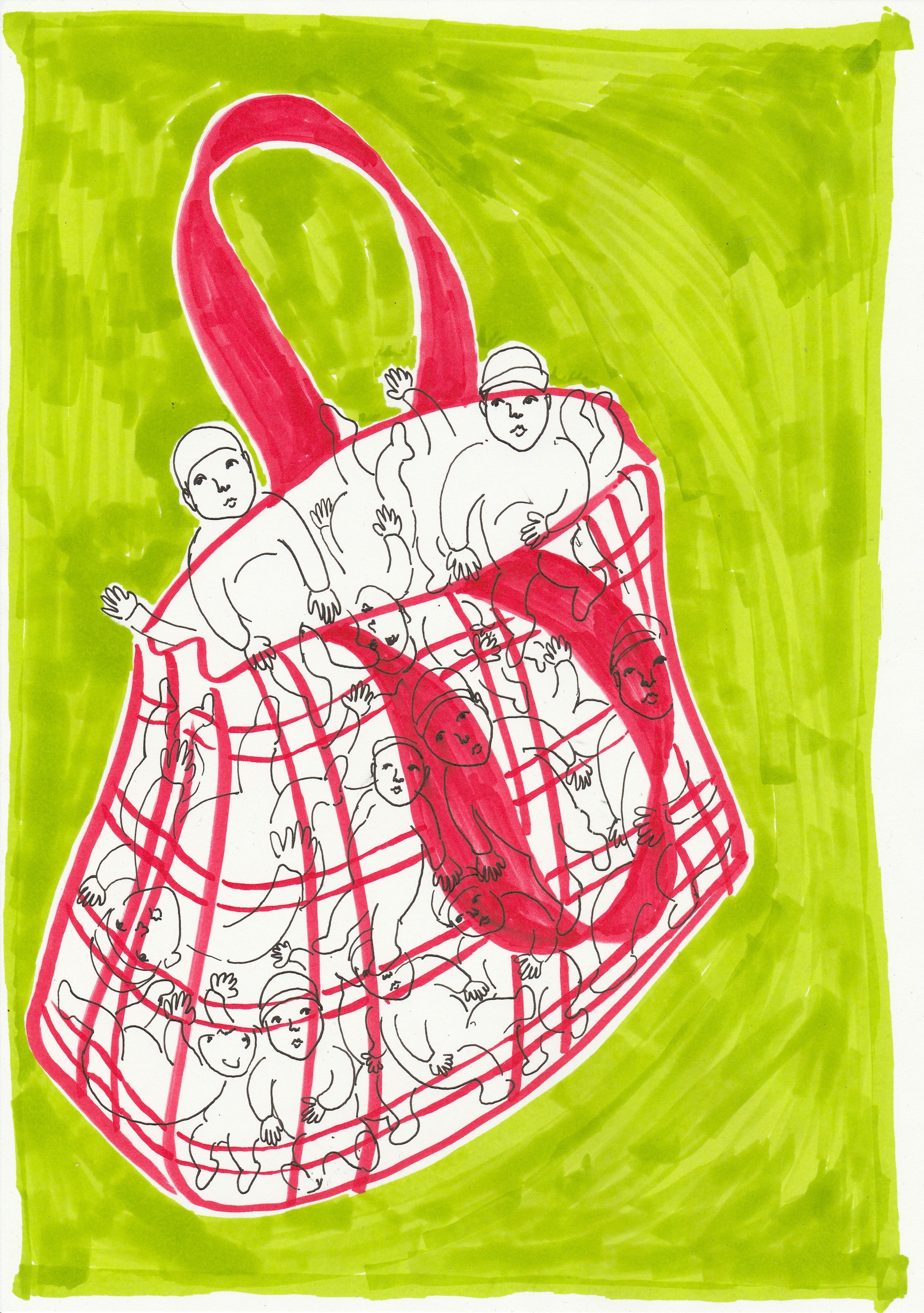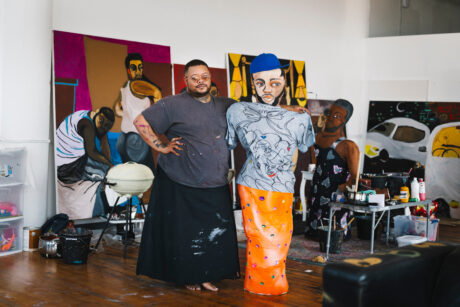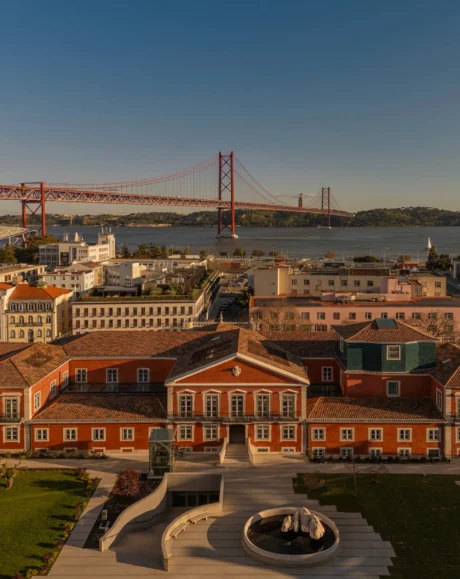
We glimpsed an ominous circle of chairs under grim strip lights. “Oh god,” my boyfriend and I said to one another. In the centre of the circle was one of those oversized tartan-check bags you get in the market for £1, stuffed with NHS-supplied plastic baby dolls. “Do you want a black one, or a white one?” my boyfriend yelled (or so it felt) to me as he fished around among them. I shrank awkwardly into my seat, the strip lights burning much brighter on my blanched face. He came back clutching a grubby-looking pinkish one in a baggy yellow cardigan. (They were all pink, or once pink.) So this was it. The start of our journey to becoming parents.
“So this was it. The start of our journey to becoming parents.”
Someone (we don’t know the sex) has been growing inside my body for thirty-one-and-a-half weeks now. Pregnancy so far has brought some enlightening experiences, such as watching a group of grown men demonstrate, with their grubby pink baby dolls in their arms, how breastfeeding should be done. I’ve savoured the nourishing kindness of strangers, friends, colleagues and family. I’ve appreciated the odd belly pat (I know many women hate this, but I think it’s lovely). The joy of the “special assistance” queue and the “priority seat”. I’ve been appalled to hear that bump-shaming is a thing, and to find out the British government doesn’t really seem to like self-employed mothers. And I learned that Queen Victoria was the first woman to give birth lying down—supposedly under full anaesthetic.
I have never felt more glad to be a woman—and I’ve never been more certain that the difference between the cis sexes, between the biology of men and women, means we can never really be reconciled. “You remind me of a seahorse,” my boyfriend said to me, surveying my new ball shape on seeing me for the first time after two months. “Of all the pregnant animals, I remind you most of the only male animal that carries children?” I asked.
I realized I must be pregnant while on a boozy press trip in Italy, and suddenly shirked away from prosciutto crudo and prosecco (well, maybe I got a couple of glasses of the latter one in, the last guiltless gulps before the news was finally confirmed by the thin blue line). The responsibility of being a parent kicks in swiftly.
The changes taking place in my rapidly evolving body have made me feel connected with women in ways I never expected or anticipated. Not only with mothers. It’s the first time I have fully understood—having never been pregnant before—what women have to go through in their bodies whether they want a child or not. I was never more acutely aware of this as a close friend went through an abortion as I waited to receive results of a test at twelve weeks to confirm whether my child had any of the three detectable chromosomal illnesses. The physical experience of being a woman has brought me closer to artists whose work I’ve never fully related to. In April, our child comprised only of a heartbeat twice as fast as mine, I felt myself examining Heji Shin’s Birth Photos with new curiosity, grateful to have some kind of anatomical study for what lies ahead. When the baby growing in my belly was barely the size of a lemon, I shed a tear reading a text Tracey Emin had written about imagining childbirth and thinking herself barren (Kiss Me, Kiss Me. Cover My Body in Love, 1996) hanging on the wall at Breese Little gallery’s final show, 31 Women, in Bethnal Green in June. “There are good artists that have children. Of course there are,” Emin once said. “They are called men.”
“There are good artists that have children. Of course there are. They are called men.”
In August, when I could still lie on my back, I watched the documentary Alice Neel’s nephew made about the late American painter: the amount of pain one person can go through—growing four children in your womb, each for nine months, and losing two of them—not to mention the hardship, poverty, and betrayal Neel suffered. What really got me, though, was Neel’s ability to continue to create; her willingness to still be optimistic about the world. I started to get the sense of that other thing having children offers you—the chance to see a world far bigger than yourself.
By September, the bump now carrying a thing the size of a squash, I felt a deep sense of warmth looking at Louise Bourgeois’s tightly bound fabric sculpture, a small figure clutching onto its pillow of a headless torso, The Found Child (2001). The awful, often painful conflict of motherhood and career, observer and nurturer, in the stained nappies and vests that make up Mary Kelly’s seminal 1976 Post-Partum Document affects me deeply—before it just looked like a lot of stuff in frames I couldn’t really understand. Put it down to hormones, but I’m relishing every new perspective and emotion. My cynical edge has softened with my expanding uterus. What will this do for my creativity? Many people have written on the subject, and many people proffer advice—or rather, warnings. In a few weeks I will find out.
The way I see women, the way I feel about them, has fundamentally changed. I have felt overwhelmed at times looking at women I pass on the street, pushing prams, holding hands with a toddler, ushering a uniform-clad small person to school: they look mystical, astonishing. Motherhood still feels like a far-off and impossible task. I scour their faces for signs of the secret from the other side.
The baby now has everything it needs to survive outside of the womb, except a bit of body fat. It’s the size and weight of a coconut (but feels like more like a crate of them). Back at the hospital for another NHS antenatal class with all the other first-time parents—all ages, races, religions, shapes, sexualities, all equally taut with nerves—the midwife shows us a photograph of a woman who has just given birth, the baby remarkably clean, the picture pixellated so as to conceal the apparently offensive nipples of the naked mother. “What’s missing from this photo?” she asks the class. “THE TITTIES!” my boyfriend shouts back. As I said, the differences between us, men and women, might just be irreconcilable…





